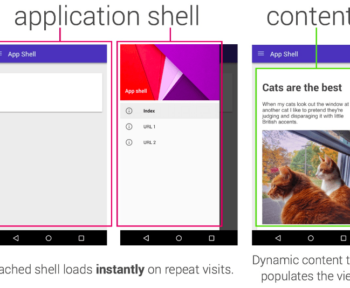Keyword research is one of the most important activities for online marketing. Apparently, it’s one of the simplest things to do in digital marketing. Ultimately, one might think, it’s “just” a matter of choosing words. Instead, as we will see shortly, this choice determines the success or failure of an entire marketing or communication plan. And, consequently, the success of the launch of a product, or the promotion of a brand.
But, exactly, what does keyword research mean and why is it so important? And, above all, how do you do keyword research? Let’s find out together.
Table of Contents
What is keyword research?
As the name itself says, keyword research consists of searching for keywords that are in line with the objectives of our company’s marketing plan (or the one we work for) or our business. To achieve this, specific tools and programs are used that help identify which words are most used on search engines for a given topic, such as related keywords (i.e. those that are used together with the word that interests us, or as its synonym) and other information of this kind.
Specifically, keyword research will allow you to answer three fundamental questions in every communication plan:
- What do people look for when they browse?
- How many people are looking for it?
- In what format do they want the information they are looking for?
So let’s see how keyword research is done.
Why keyword research is important for online marketing?
$ign-Up and Get “the Ultimate $emrush site Audit” E-book For Free
Even though online marketing has evolved over the years, and SEO has gone hand in hand, keyword research is still one of the most important things to do as soon as you start working on a new project. In fact, well-conducted keyword research can determine the success (or, on the contrary, the failure) of a marketing campaign of any kind.
Keywords, in fact, are the basis on which to build the entire online promotion strategy of a brand, a product, or an initiative. Contrary to popular belief, keyword research is not only used to write content to be positioned on some search engines (Google mainly, but not only). Keyword research, for example, can also be useful for designing and creating the infrastructure of e-commerce, choosing the product categories with the highest number of searches. Or, again, to advertise online, creating advertisements focused on the words most searched for by users.
Keyword research, however, is also functional for the “positioning” of posts on social platforms (in this case the most impactful hashtags will be searched for, for example). Or, again, SEO can also be used to sell products on e-commerce portals managed by third parties. For example, keyword research is of great importance for selling on Amazon: it allows you to position yourself high among the search results, thus increasing the possibility of increasing the conversion rate and, with it, the sales volume.
Which tools to use for keyword research?
The Best Keyword Research Tool For Your Business
From what has been said above it is clear that to search for the keywords to use in your project it is necessary to use tools that help us in the search and allow us to optimize the results obtained. There are dozens of tools for doing keyword research, some free, others paid. Both the free tools for finding keywords and those that require a subscription allow you to analyze not only the word of interest but also provide a list of related keywords that will help to define more precisely what we could call “territory”. semantic ” of the project.
SEMrush: Probably the most used SEO suite in the world - or, at least, one of the best known - is increasingly strengthening its position on the US market too. With the free account you can carry out up to 10 searches per day, allowing you to view the search volume and other values useful for your choice not only for the entered word but also for broad match, phrase match, exact match keywords, related and keyword questions
How to do keyword research?
Now that we have seen what the tools are, let’s also try to understand how keyword research is done. First, however, it is necessary to clarify a concept: as already mentioned, SEO (and keyword research) has changed profoundly compared to a few years ago. Continuous updates have transformed search algorithms, making them more “intelligent” than they were in the past. In particular, today search engines - and Google in particular - are able to evaluate the user’s “search intent”, inserting the key used in a context made up of past searches, navigation data, and many other ” clues” that we leave behind us while using the web.
These changes, obviously, also influence the work of SEO and those who create “SEO-oriented” content. Aiming at the positioning of a keyword or applying the “one keyword-one content” strategy is not only out of date but will also be useless. The results, in fact, will be poor if not completely nonexistent, and, even, it could even happen that the page positions itself for a completely different keyword.
So, how to do keyword research so that the marketing campaign gives good results? First of all, you have to put yourself in the user’s shoes and try to think like him. That is, we need to get in front of a computer and start doing online research, trying to identify as much as possible with what should be our “reference audience”. This operation, a sort of solitary brainstorming, will allow us to obtain various keywords from which to start the analysis using the tools mentioned previously.
Once you have a list of “target” keywords you need to evaluate their goodness. That is, what are the words in which to invest (both in economic terms and in temporal terms) because they will guarantee a return in terms of positioning and visibility? As we have seen, keyword research tools provide some useful indicators for navigating the complex world of keywords. In particular, the ones to pay more attention to are the volume of searches and the keyword difficulty (which, depending on the tool used, can change its name).
What Does Search Volume Mean?
In this case, the name says it all. This is the number of searches performed for that particular word. However, we must be careful: the search volume can vary from month to month, especially in the case of seasonal keywords (such as “Christmas gifts” or “the most beautiful beaches in Sardinia”, for example), and is an estimated value, since that search engines do not provide precise data on their activities;
What is keyword difficulty?
Don’t Miss To Get $emrush The Ultimate $ite Audit Free E-book $ign-Up!
With the term “keyword difficulty” (or a similar name) the various tools indicate the difficulty you will have in positioning yourself on the first page of the SERP for that specific keyword. Also in this case it is an estimated value determined by factors chosen by those who create the keyword research platform. Broadly speaking, the various competitors will show similar values, but this is not necessarily always the case.
At this point, it is natural to ask: which of these two factors should we pay more attention to? The answer, as often happens in the world of SEO, is it depends. Sometimes trying to position yourself for a keyword with a high volume of searches (like “WhatsApp”, for example) is a superhuman effort, as well as useless. At the same time, it doesn’t even mean that it’s worth ranking for a low-difficulty keyword. It will be up to the keyword researcher to establish which keywords are most suitable for his plan, evaluating from time to time what the ideal combination is between difficulty in positioning and search volume.
Which keywords to choose?
Finally, it should be added that not all keywords are the same. Indeed: they differ depending on the purpose for which we are creating a communication plan or on the search intentions of the users we would like to intercept. In particular, the keywords are differentiated into informational, navigational, and transactional and, broadly speaking, correspond to three different levels of depth of the conversion funnel.
- What are informational keywords? Most web searches are based on informational keywords and are used by users when they are looking for information on a certain topic. They can range from the most varied topics: from current news to recipes; from “how-to” guides to specialist content
- What are navigational keywords? Navigational keywords refer to very specific websites. For example, they may refer to the login pages of portals (such as “Facebook login”) or to the home pages of some portals that we rarely visit and of which we do not remember the precise URL
- What are transactional keywords? These are the keywords that go deeper into the funnel and are designed to “speed up” the conversion process from user to customer. We gave an example of a transactional keyword previously, talking about red t-shirts for 2-year-olds. In fact, these are those keywords that imply a “commercial” (or transactional, to be precise) intent and guide the user toward the much-desired object
- Which keyword should you choose, therefore, when building an editorial plan or a marketing plan? As mentioned, everything depends on what our objectives are. If, for example, we have to promote an e-commerce portal or the services offered by our company, we must think of a mix between informational keywords (for the blog, if it were present) and transactional keywords (again for the blog, in the most “direct” to sales and on product pages). If, however, our objective is to inform, however, we will obviously have to focus on informational keywords.
No longer just keywords, Google is evolving toward natural language
But if, as we have said, keywords are of fundamental importance for returning users to the content they are looking for, it is also true that today the single keyword (long-tail or not) takes on more and more value within the context in which it is inserted. One of Google’s latest algorithms, BERT, now detects not only the keyword but also the other words connected to it, in order to return increasingly high-quality content close to the search intent.
Google BERT, in fact, works by connecting the words used before and after a keyword in a search query (i.e. the question or request posed by a user to a search engine) to provide relevant results for the user. “BERT – says Google – has helped us grasp the subtle nuances of language that computers don’t understand as well as humans do”.




1 Comment
Health News
It is my pleasure to read everything in one spot; this is my first little visit.